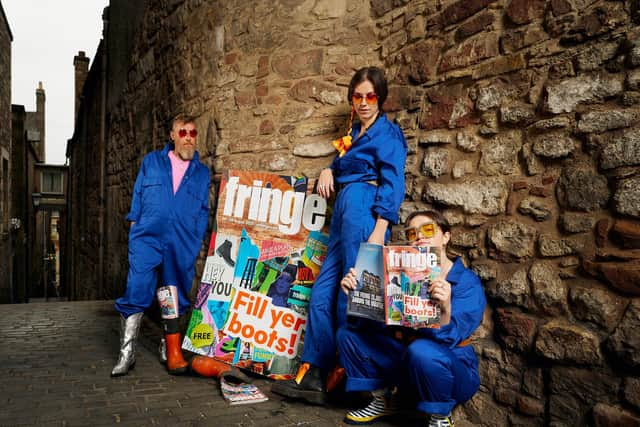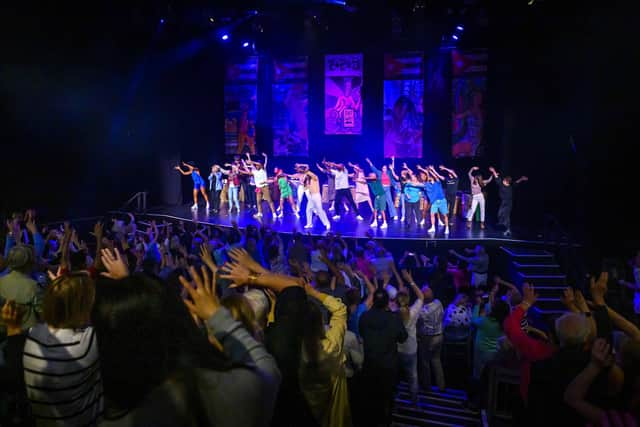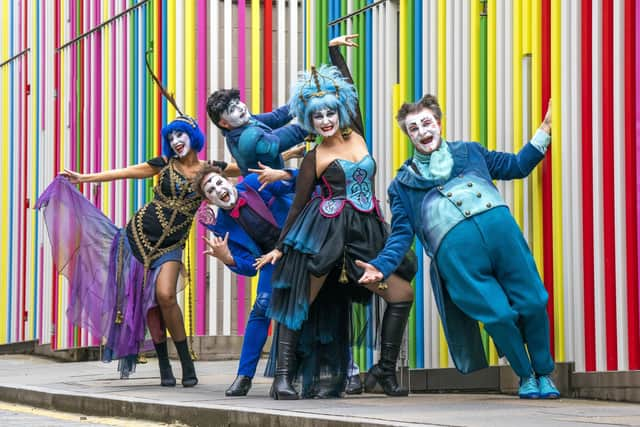Edinburgh festivals prove their resilience as new era gets underway – Brian Ferguson
and live on Freeview channel 276
It might have felt as if Edinburgh’s festivals fizzled out in the absence of their famous fireworks finale, but the packed venues and pop-up sites across the city over the weekend told a very different story.
It was a bumper finale to a season that seemed to go an awful lot better than the one 12 months ago – and perhaps a good bit better than many had expected this year.
Advertisement
Hide AdAdvertisement
Hide AdThe disruption caused by rail and refuse worker strikes last year were a distant memory. Concerns that crowds would be dramatically down due to the cost and availability of accommodation eased as it became clear that enough of those who had booked up were there to see or take part in shows.


And, generally speaking, the festivals have proved remarkably resilient in handling the impact of rising costs, both for potential ticket buyers and their own operations. An 11 per cent year-on-year increase in ticket sales at the Fringe was by far the most significant result across the festival landscape.
The ever-embattled Fringe Society emerged somewhat triumphantly to herald the 12-month boom, but was quick to point out all the issues around the affordability of putting on shows had not gone away. It is beyond question that rising costs are a major deterrent affecting the demographic of those who are performing.
Finding ways of supporting performers and companies financially must be top priority for not only the Fringe and its main venues, but also for the Scottish and Westminster governments, given the level of interest and participation from across the UK.
Advertisement
Hide AdAdvertisement
Hide AdThe Fringe has had competition on the lobbying front from the Edinburgh International Festival, which blamed funding pressures for dropping Leith Theatre, a backward step for efforts to spread the benefits of the festivals and ensure it has a viable future.


Nicola Benedetti was impressively omnipresent in her first year as EIF director, which focused on quality and some bold experiments in its other venues, including the reimagined use of its own headquarters at The Hub as a welcoming “green room”.
The “opening fanfare" weekend in Princes Street Gardens was hugely significant due to the involvement of hundreds of young musicians. Hopefully Benedetti can secure a return to the gardens and help ensure that a temporary stage stays up for more than two days and is made available to all the festivals.
The sense of a new era for the EIF was mirrored in the other major events. New art festival director Kim McAleese may have reduced its core dates by a fortnight, but broadened its horizons across the city and introduced several signature events to its programme.
Advertisement
Hide AdAdvertisement
Hide AdThe book festival will return in 2024 under a new director, Jenny Niven, and a new home at Edinburgh University’s Futures Institute, after a turbulent last year for Nick Barley. He had grappled with the need to reduce costs and then had to contend with the furore triggered by Greta Thunberg’s cancellation.


The return of the film festival was probably the biggest source of celebration after the collapse of its parent company, even if its return, to a largely positive response, was in understandably reduced form. A possible revival of its much-loved Filmhouse headquarters would be the catalyst for it to get properly back on its feet.
Comment Guidelines
National World encourages reader discussion on our stories. User feedback, insights and back-and-forth exchanges add a rich layer of context to reporting. Please review our Community Guidelines before commenting.
